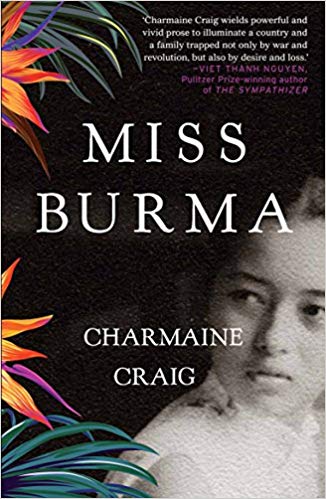The Miss Burma in the title is Louisa Bension, the daughter of Benny, a Jew, and Khin, belonging to the Karen minority. And, she is also the mother of Charmaine Craig, the author of the book.
Charmaine Craig writes about the Burma she has heard about from her mother, starting with the life of her grandparents Benny and Khin and ending soon after Benny’s emigration to America with two of his daughters. Not a very long stretch in the record of a nation, but a most tumultuous one in Burmese history. The Second World War was raging; British colonial rule was practically on its last legs, and it had scant resources to guard India, the ‘Jewel in its Crown’ from the marauding Japanese army that was advancing through Burma; Aung San, considered the father of modern Burma, and his army were aiding the Japanese, ostensibly to free Burma from colonial rule, while the Karens and other ethnic minority groups were sturdily behind the British in the hope of future rewards with a British win. Complicated and tragic as the situation was, it was further compounded by the treachery and double dealing of Burmese leaders who took over the government at independence. Benny’s and Khin’s early life together passed peacefully till the birth of Louisa. Then Benny, the ‘white Indian’ belonging to no identifiable group was arrested by the Japanese army, and Khin was left to fend for herself and her baby. From then on, their life followed a roller-coaster existence—extreme wealth, (at one time Saw Bension was considered the wealthiest man in the country), further arrest, this time by the Burmese rulers, more torture, release and a final uneasy, uncomfortable life with his wife and brood of children, before emigration to the USA courtesy of the CIA.

